Crafting the Perfect Content Writing Resume: Essential Tips and Examples
Writing a resume for a content writing job requires a blend of creativity and professionalism to effectively showcase your skills and experience. Here’s a comprehensive guide to help you craft a compelling resume
The header of your resume should be clean and professional, with your name in a larger font followed by your contact information. Consider using a subtle design element to make your header stand out without being distracting. Including a LinkedIn profile link is essential, as it allows recruiters to explore more of your professional background.
Summary or Objective Statement
Your summary should succinctly summarize your experience and skills as they relate to content writing. Highlight specific achievements or skills that make you a strong candidate, such as proficiency in SEO-driven content creation, ability to write engaging blog posts, or experience in managing social media content calendars. If you're a recent graduate or transitioning into content writing from another field, use an objective statement to express your career goals and how your skills align with the position.
Professional Experience
Detail your work experience with an emphasis on roles that involved writing, editing, or content creation. For each position, quantify your achievements where possible (e.g., "Increased website traffic by 30% through SEO-optimized blog posts"). If you have freelance or contract work experience, include that as well to demonstrate your versatility and ability to work independently. Highlight any industry-specific knowledge or projects that showcase your ability to adapt your writing style to different audiences or topics.
Education
In addition to listing your degrees and coursework, mention any relevant extracurricular activities or academic projects that demonstrate your writing skills. For example, if you wrote for the school newspaper or managed a blog as part of a class project, include that information to showcase your practical experience.
Skills
Expand on your skills section by categorizing them into technical skills (e.g., proficiency in CMS platforms like WordPress or Drupal), writing skills (e.g., ability to write SEO-friendly content, strong storytelling skills), and soft skills (e.g., time management, attention to detail). If you have specific certifications related to content writing or digital marketing (e.g., HubSpot Content Marketing Certification), highlight them here.
Certifications and Training
Provide more detail about any certifications or training courses you've completed, including their relevance to content writing. For example, if you've completed courses on copywriting techniques or social media marketing, explain how these certifications enhance your skill set as a content writer.
Awards and Honors
If you've received any awards or honors related to writing or content creation, such as "Best Blog Post of the Year" or "Top Content Contributor," elaborate on what you did to earn those accolades. This not only showcases your achievements but also reinforces your credibility as a skilled content writer.
Publications or Portfolio
Discuss the importance of including a portfolio of your work in your resume. Provide practical tips on how to organize and present your portfolio, such as categorizing samples by type (e.g., blog posts, articles, social media content) or topic (e.g., technology, travel). If you're including links to published articles or blog posts, ensure they are active and accessible to potential employers.
References
Explain when and how to include references in your resume. If you choose to list references, ensure they are individuals who can speak to your writing abilities and work ethic. Alternatively, state that references are available upon request to maintain a clean and concise resume format.
Formatting Tips
Offer detailed advice on resume formatting, including font styles and sizes that are easy to read, suitable margins, and the importance of using bullet points for listing responsibilities and achievements. Encourage applicants to use a consistent format throughout the document to enhance readability and professionalism.
Proofread and Edit
Highlight the importance of proofreading your resume multiple times to catch any grammatical errors or typos. Suggest using tools like Grammarly or asking a trusted friend or mentor to review your resume for feedback. Emphasize that a well-edited resume reflects attention to detail, a crucial skill for any content writing position.
Conclusion
Summarize the key points of crafting a resume tailored for a content writing job, emphasizing the need to showcase writing skills, relevant experience, and industry knowledge. Encourage applicants to customize their resumes for each job application by aligning their skills with the specific requirements of the position.
By expanding on these sections and providing practical tips, applicants can create a comprehensive and compelling resume that effectively showcases their qualifications for a content writing role.








